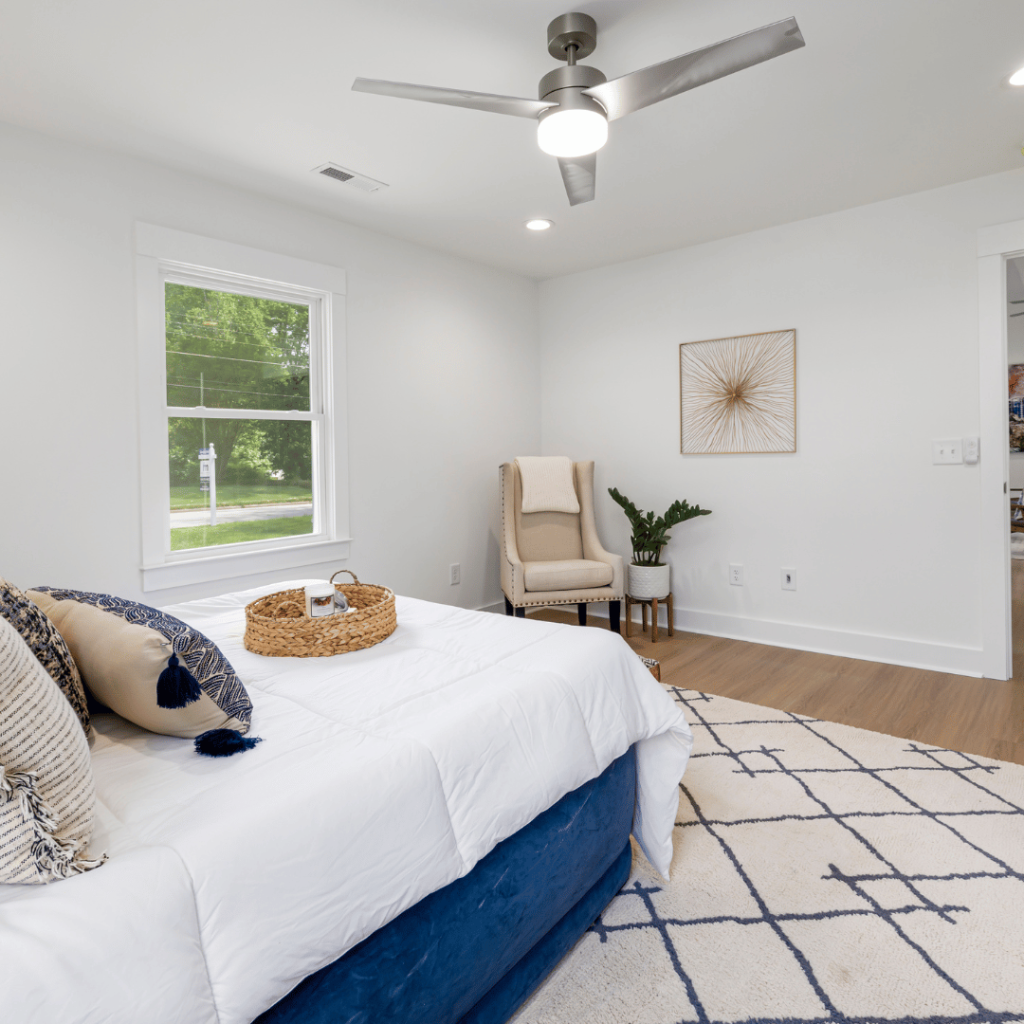Selling a home is more than just a transaction — it’s a major life decision that involves financial planning, emotional readiness, and a solid understanding of the real estate process. And in a high-stakes market like Silicon Valley, knowing what to expect when you sell a house can make a significant difference in your outcome.
At Silicon Valley Real Estate, we specialize in providing expert Seller Representation to guide homeowners through every step — from pricing and preparing your home to closing and moving out. Whether you’re relocating, downsizing, or cashing in on years of equity, our team is here to make the process smooth, strategic, and stress-free.
In this article, we’ll answer some of the most common questions sellers have, including:
- What happens when you sell a house and make a profit?
- How long do you have after selling to avoid capital gains taxes?
- When will you receive your money?
- What are you expected to leave behind?
- Can you leave things in your house when you sell?
Let’s dive into what you need to know before putting your Silicon Valley home on the market.
What Happens When You Sell a House and Make a Profit?

When you sell a house for more than what you originally paid for it — including the cost of improvements and selling expenses — the difference is considered a capital gain. In Silicon Valley, where home values tend to appreciate significantly over time, many homeowners walk away with substantial profits.
Understanding Capital Gains
If the home you’re selling is your primary residence, the IRS allows you to exclude a portion of your gain from taxes:
- Up to $250,000 for individuals
- Up to $500,000 for married couples filing jointly
To qualify for this capital gains tax exclusion, you must meet the following requirements:
- You’ve owned the home for at least two of the last five years
- You’ve lived in the home as your primary residence for at least two of those five years
- You haven’t claimed this exclusion on another property in the last two years
If your gain exceeds these limits, or if you don’t meet the requirements, you may owe taxes on part or all of your profit. This is where working with a knowledgeable real estate professional becomes crucial.
How Our Seller Representation Helps
At Silicon Valley Real Estate, our Seller Representation services go beyond marketing and negotiation — we help you:
- Understand your net proceeds
- Collaborate with your financial advisor or CPA regarding tax implications
- Time the sale strategically to maximize returns
- Prepare your home to appeal to serious buyers
Our local market knowledge and experience with high-value transactions allow us to advise you confidently so you’re not caught off guard when you sell a house and make a profit.
How Long Do You Have After Selling a House to Avoid Capital Gains?
This is one of the most common misconceptions sellers have: that you can take action after the sale to avoid capital gains taxes. In reality, your eligibility for the capital gains tax exclusion depends entirely on what you’ve done before you sell the home.

Key Requirements to Avoid Capital Gains Taxes
To qualify for the IRS capital gains tax exclusion on your home sale, you must meet the following before the sale:
- Ownership Test: You owned the property for at least 2 of the last 5 years before the sale.
- Use Test: You lived in the home as your primary residence for at least 2 of those 5 years.
- No Recent Exclusion: You haven’t used the exclusion on another property within the past 2 years.
If you meet all three criteria, you can exclude up to $250,000 (individuals) or $500,000 (married couples) of your gain from being taxed. If you don’t meet those requirements, the full amount of your profit may be subject to capital gains taxes, either short-term or long-term, depending on how long you owned the property.
Special Considerations for Investment Properties
If you’re selling a rental, vacation home, or other non-primary residence, the tax rules are different — and often more complex. In these cases, working with an experienced real estate team that includes Investment Property Specialists is critical.
At Silicon Valley Real Estate, we partner with trusted tax professionals and provide strategic advice for:
- 1031 exchanges (to defer capital gains taxes on investment properties)
- Timing your sale to minimize tax liability
- Navigating depreciation recapture and other investor-specific concerns
How Long After You Sell a House Do You Receive the Money?

Once your home is sold and all the paperwork is signed, the next big question is: “When do I actually get paid?” The answer depends on the closing process, but in most cases, sellers in Silicon Valley receive their funds within 1 to 3 business days after the transaction closes.
Here’s How the Payment Process Works:
Closing Day
You and the buyer sign all necessary documents, and the buyer’s loan funds (if applicable) are wired to escrow.
Recording
The title company records the new deed with the county. In California, this often happens the next business day, especially in high-volume counties like Santa Clara and San Mateo.
Funds Disbursed
Once recording is confirmed, escrow releases your net proceeds via wire transfer or check — based on your preference.
Typical Timeline:
You’ll usually receive your money within 1 to 3 business days of the closing date, depending on how quickly the county processes the recording and your financial institution handles incoming funds.
Planning Your Next Move
If you’re planning to buy another property after selling — whether you’re upsizing, relocating, or transitioning to retirement — timing is everything. Our team provides expert Buyer Representation to help you:
- Coordinate the sale of your current home with the purchase of your next
- Structure offers with rent-backs or extended closings to create flexibility
- Understand how to use your home equity in competitive markets like Silicon Valley
At Silicon Valley Real Estate, we’re committed to helping you navigate both sides of the transaction smoothly — with confidence and peace of mind.
What Are You Supposed to Leave When You Sell a House?

A common question among home sellers is: “What am I required to leave behind when I move out?” The general rule is straightforward — if it’s attached to the property, it stays. If it’s not attached, you can take it — unless otherwise specified in the purchase agreement.
Items You’re Typically Expected to Leave:
- Built-in appliances (oven, stove, dishwasher, microwave hood)
- Light fixtures and ceiling fans
- Window coverings (blinds, curtain rods, shutters — unless excluded in writing)
- Attached shelving or cabinetry
- Garage door openers and security system equipment
- Landscaping and outdoor structures that are fixed in place
Anything considered a fixture — meaning it’s physically attached to the home — is generally included in the sale, unless the buyer and seller agree otherwise in the contract.
What About Personal Items?
If there are specific items you want to take with you, such as:
- A chandelier you installed
- Custom curtains with sentimental value
- A mounted TV or wall speakers
These must be disclosed and excluded in writing during the negotiation phase. Otherwise, the buyer has the right to expect them as part of the sale.
Specialized Support for Life Transitions
At Silicon Valley Real Estate, we work with clients in all stages of life — and we understand that some situations come with unique challenges. Whether you’re selling due to downsizing, aging, or a major life event, our team includes:
- Senior Real Estate Specialists who provide compassionate, step-by-step guidance for older homeowners
- Certified Distressed Property Specialists who assist sellers navigating short sales, foreclosure avoidance, or financial hardship
No matter your situation, we’re here to help you sell confidently and with a clear understanding of your obligations.
Can I Leave Things in My House When I Sell It?
Many sellers ask: “Can I leave furniture or other belongings behind when I sell my house?” The short answer is — only if the buyer agrees to it in writing.

What You Can Leave (With Agreement):
You may be able to leave behind:
- Furniture
- Décor items
- Appliances not originally built-in (like a washer/dryer or a second fridge)
- Tools or supplies (like leftover paint or yard equipment)
However, these items must be included in the purchase agreement and approved by the buyer ahead of time. Otherwise, you’re expected to completely empty the home before closing.
What You Shouldn’t Leave Behind:
Unless agreed upon:
- Personal belongings, clutter, or trash
- Broken appliances or old furniture
- Construction materials (tile, wood, etc.) unless requested
Leaving behind items without permission can result in legal liability or post-closing disputes. It can also delay the buyer’s move-in process.
Clean and Clear: The Industry Standard
The standard expectation in Silicon Valley real estate is that the home be delivered “broom clean” — meaning:
- All personal items are removed
- The home is swept or vacuumed
- No damage is left behind
Support for Unique Situations
Sometimes, sellers aren’t physically able to clear out their property — especially in the case of estate sales, financial hardship, or major life changes. That’s why Silicon Valley Real Estate offers tailored support through our:
- Certified Distressed Property Specialists — helping sellers manage the logistics of selling under pressure
- Senior Real Estate Specialists — experienced in coordinating moves, clean-outs, and transitions with care and sensitivity
If you need help coordinating a property cleanout, we can connect you with trusted local vendors to handle everything from junk removal to donation pickups.
What to Know When You Sell a House in Silicon Valley
Selling a home in Silicon Valley is a significant financial event — and in today’s fast-moving market, preparation and expert guidance are everything. Whether you’re aiming to maximize your return, navigate taxes, or manage a major life transition, understanding what happens when you sell a house helps you avoid surprises and stay in control.
Let’s recap what you’ve learned:
- If you make a profit, you may qualify for a capital gains tax exclusion — but only if you meet IRS rules before you sell.
- Most sellers receive their money within 1–3 business days after closing, once the county records the sale.
- You’re generally expected to leave fixtures and built-in appliances — and only leave personal items if the buyer agrees in writing.
- Selling a home that’s an investment, part of an estate, or tied to hardship requires specialized knowledge and support.
- Working with a team that offers full-service Seller Representation — and understands the unique needs of each seller — can make the entire process smoother and more profitable.
No two sales are alike. That’s why our team at Silicon Valley Real Estate brings deep local expertise and a wide range of services to meet your specific needs — whether you’re selling a family home, downsizing, managing a rental, or navigating a distressed sale.
Work With the Experts at Silicon Valley Real Estate
At Silicon Valley Real Estate, we understand that selling a home is more than a financial transaction — it’s a major life decision. Whether you’re a long-time homeowner, investor, or going through a significant transition, our experienced team is here to guide you through every step of the process with clarity and confidence.
We offer:
- Seller Representation to help you prepare, price, market, and successfully sell your home
- Buyer Representation if you’re planning to purchase another property after your sale
- Deep expertise from Investment Property Specialists for rental sales, 1031 exchanges, and portfolio strategies
- Support from Certified Distressed Property Specialists for homeowners facing financial hardship or foreclosure
- Compassionate service from Senior Real Estate Specialists for downsizing, estate sales, and life transitions
When you work with us, you gain access to local market knowledge, professional resources, and a tailored approach designed to meet your unique needs.
Contact Us Today
If you’re thinking about selling your home in Silicon Valley, we invite you to schedule a free, no-obligation consultation. We’ll provide:
- A detailed, personalized market analysis
- Strategic advice based on your goals and timeline
- Answers to your questions about pricing, taxes, and next steps
Let Silicon Valley Real Estate help you move forward with confidence, clarity, and results.







